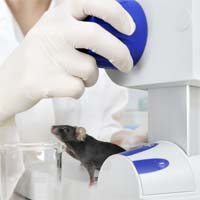Japanese Doctors Test Potential New Target for Mesothelioma Therapy
Mesothelioma is a fast-growing and currently incurable cancer that occurs most often in people who have been exposed to the mineral asbestos. It grows on the linings around the lungs or other organs making surgery and targeted radiotherapy especially difficult. Current chemotherapy drugs typically do not improve survival by more than a few months and researchers around the world continue to search for a way to attack mesothelioma at the cellular level.
Now, a new study out of Japan suggests that ganglioside GM2, a surface glycolipid that is overexpressed in a number of cancer types including multiple myeloma, neuroblastoma, and mesothelioma, may offer a way to do that. Glycolipids provide energy and serve as markers for cellular recognition. Oncologists with the Cancer Research Institute at Kanazawa University in Japan have been testing an anti-GM2 antibody called BIW-8962 on GM2-positive mesothelioma cells in the lab and in live mice.
The team found that 8 out of 11 mesothelioma cell lines were GM2-positive, although the levels of GM2 varied between cell lines. BIW-8962 showed significant cancer-fighting properties against mesothelioma cells in the lab through a process called antibody dependent cellular cytotoxicity (ADCC). The effect varied depending on the dose of BIW-8962 and the concentration of GM2 in the cells.
In live mice, 58% of the mesothelioma tumors tested positive for GM2. “BIW-8962 significantly decreased the incidence and size of tumors,” reports author Dr. Qi Li, who concludes that anti-G2 antibodies like BIW-8962 may become a therapeutic option for human mesothelioma patients, who currently have few treatment options available to them.
The study was published in in the journal Cancer Science.
Source:
Li, Qi et al, “Therapeutic activity of glycoengineered anti-GM2 antibodies against malignant pleural mesothelioma”, November 25, 2014, Cancer Science, Epub ahead of print






